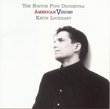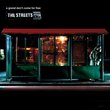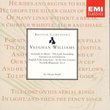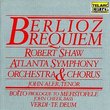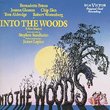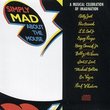| All Artists: Francis Poulenc, Camille Saint-Saens, Charles Dutoit, Montréal Symphony Orchestra, Philharmonia Orchestra of London, Peter Hurford Title: Saint-SaŽns: Organ Symphony; Poulenc: Organ Concerto Members Wishing: 0 Total Copies: 0 Label: Decca Original Release Date: 1/1/2007 Re-Release Date: 2/13/2007 Album Type: Original recording remastered Genre: Classical Styles: Forms & Genres, Concertos, Symphonies Number of Discs: 1 SwapaCD Credits: 1 UPC: 028947577287 |
Search - Francis Poulenc, Camille Saint-Saens, Charles Dutoit :: Saint-SaŽns: Organ Symphony; Poulenc: Organ Concerto
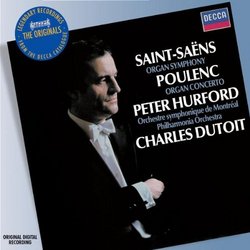 | Francis Poulenc, Camille Saint-Saens, Charles Dutoit Saint-SaŽns: Organ Symphony; Poulenc: Organ Concerto Genre: Classical |
Larger Image |
CD DetailsSimilarly Requested CDs
|
CD ReviewsA Fine Pairing: Contrasts in French Music Grady Harp | Los Angeles, CA United States | 04/18/2008 (5 out of 5 stars) "Charles Dutoit knows his way around both of these audience pleasing works of orchestral music that includes the mighty organ. Though few will forget Munch and the Philadelphia recording of the Saint-Saëns when listening to these performances, there are few recordings of either work that come together on one CD to show the spectrum of time and flavor of the French repertoire. Saint-Saëns Symphony No.3 ('The Organ') is not a concerto. The organ is simply another of the keyboard instruments that are part of the fabric of the orchestra. Dutoit acknowledges this fact and never allows the organ to override the total effect. Yes, the organ still remains a glorious 'big finish' to the work, but in the inner sections the gentle introduction of the organ keyboards are subtle and enhance the sound of the strings. This is a very elegant reading of a score than can easily become pompous in the hands of conductors less intuitive. The Poulenc Organ Concerto is heard far too seldom. It contains all the sparkle and wit so associated with Poulenc's works and yet reaches for moments of religious inspiration with equal success. The organist for both works is Peter Hurford and understands the control of the power of the organ well - keeping it secondary in the Saint-Saëns and making it primary in the Poulenc. Dutoit conducts both the Montréal Symphony Orchestra in the Saint-Saëns and the Philharmonia Orchestra of London in the Poulenc. At a recent concert as guest conductor with the Los Angeles Philharmonic in Disney Hall, Dutoit simply used the skills of the orchestra keyboard personnel for a fine performance of the Saint-Saëns and the result was a glowingly golden sound in that great hall. This CD is a bargain that should not be passed by for the music library. Grady Harp, April 08" Giddy Poulenc; Saint Saens is rushed, colorless, flat John Grabowski | USA | 04/19/2008 (3 out of 5 stars) "Another recording by Charles Dutoit, a conductor whose reputation befuddles me. This is a rushed performance of the Saint Saens that takes advantage of none of the charm, warmth and majesty in the score (even if I've often found some of the majesty to be pumped up on steroids). This is a very brisk, thinly-textured, shapeless "Organ"; it's not flaccid (we don't want a flaccid organ, do we?) but it's not interesting even though it's tightly-coiled. The opening ra ta-ta-ta-ta-ta-ta-ta... rhythm after the introductory adagio is shapeless and machine-gun like, and Dutoit doesn't take advantage of the majestic climax waiting ahead. The rest of the recording is likewise uninspired, like a quick run-through. There a couple slip ups including one trumpet overblow that I'm amazed was not edited out, and the sound is rather up-close and colorless. I'm a little puzzled by John Kwok's review, where he says the organ does not appear until seven minutes before curtain. Actually it comes in at around the ten minute mark, a quarter of the way through, in a brilliantly dignified "piano", and is then heard throughout. I can't imagine what he was hearing, but it wasn't this CD. The Poulenc fares far better with me--I don't know if Dutoit is better here or if there are even finer performances of this piece that would subsequently spoil this one for me, because, hate to admit it, I've never heard this work before. (I am sadly ignorant of much Poulenc.) This is a blast, but I have nothing to compare it to, just going on my gut here. This is a somewhat daffy work that does not take itself seriously and just races through time and space in utter abandon; one section reminded me of proto-Phillip Glass. A fun piece that I now can't wait to hear more versions of. The three stars up there are for it. For the Saint Saens, I'd recommend Karajan on DG if you want epic and stately, or Ormandy on Telarc if you want thick (even bloated, maybe) and lush--admittedly with too much reverb, but oh, this is one of the few commercial recordings out there that captures the Philadelphia strings in all their glory. It's far better than this anemic mess, at any rate. " Delightful Performances of these Saint Saens & Poulenc Works John Kwok | New York, NY USA | 08/03/2007 (5 out of 5 stars) "Newly reissued by Decca for its "The Originals" series of legendary recordings, this recording of the Saint-Saens Organ Symphony and the Poulenc Organ Concerto, merely emphasizes the excellent chemistry between conductor Charles Dutoit and organist Peter Hurford. Both were recorded in the interiors of cathedrals; the former in Montreal, Canada and the latter, in Britain, presumably, in London. For both the acoustics are quite simply exemplary, adding immensely to the lush, warm performances of the Orchestre symphonique de Montreal (Saint Saens) and the Philharmonia Orchestra (Poulenc). But what is most intriguing is the vast study in contrasts between the richly textured score of Saint-Saens, which can be seen as a posthumous homage to his mentor Liszt, especially in its grand Romantic flourishes of intensely vivid orchestral color, especially from the winds and strings, and Poulenc's own Modernist sensibilities featuring ample shading of the organ's many distinctive colors. In Saint-Saens' majestic Symphony No. 3 in C minor op. 78 "Organ", nearly three-quarters of the score pass onward in often grandly dramatic fashion, before the organ makes its presence felt in the approximately final seven minutes of the score. In stark contrast with the Saint-Saens symphony, the Poulenc Organ Concerto begins with the organ as it announces the start of this work with a thunderous reverberation, and this is soon followed by repeated instances of tranquility and joyful, electrifyingly, loud passages from the organ itself. I'm not sure whether these are definitive recordings of either work, but they are excellent recordings nonetheless, with both orchestras led capably by conductor Charles Dutoit. For anyone seeking an inexpensive digital recording of these works, then I think you'll be as delighted as I was upon hearing it."
|

